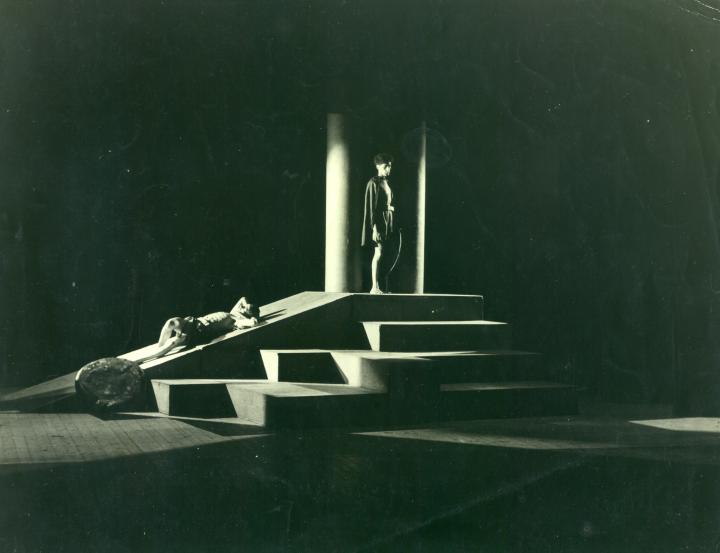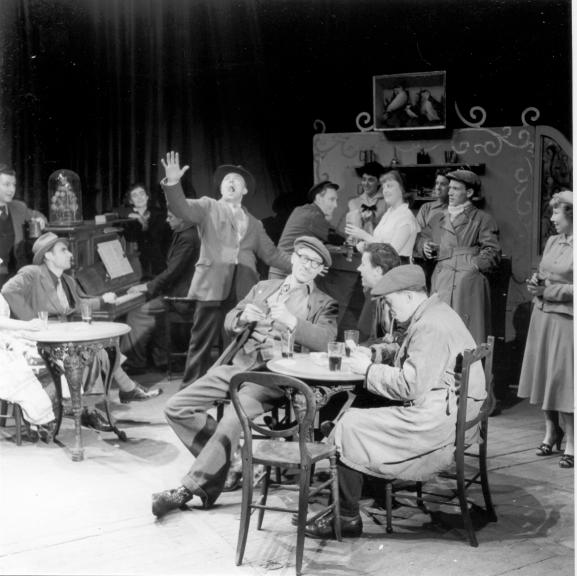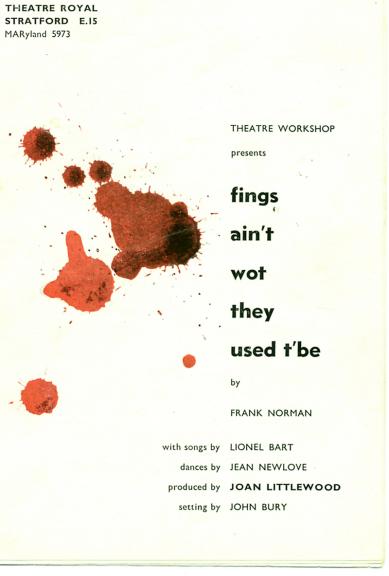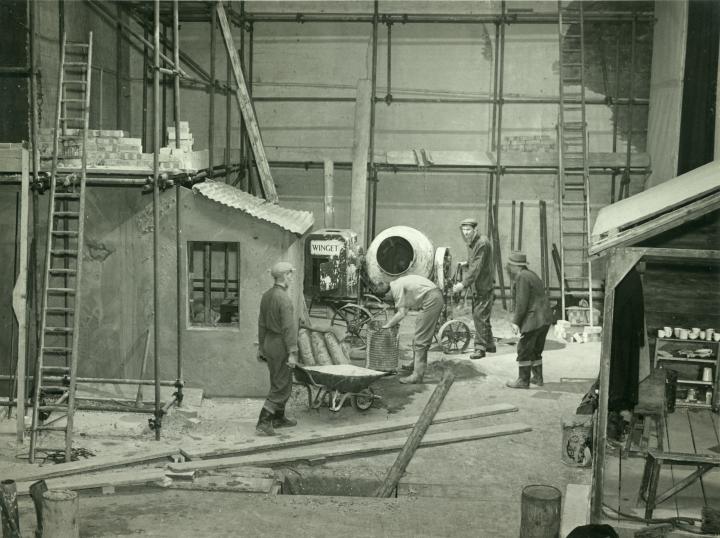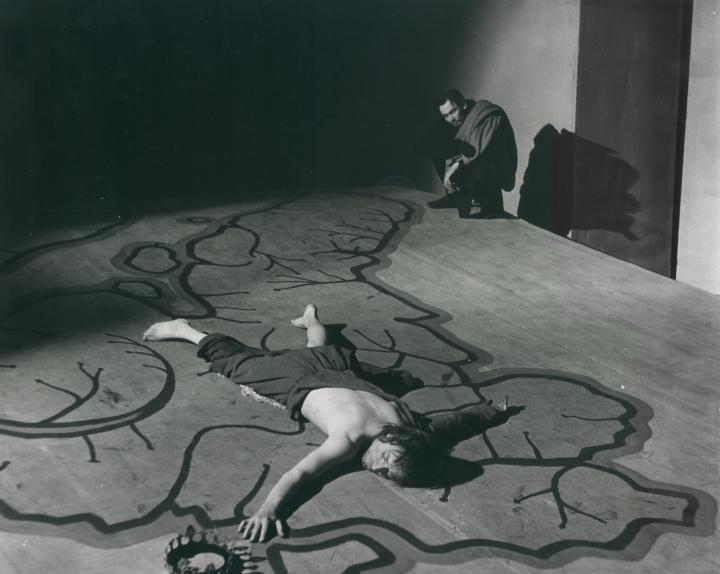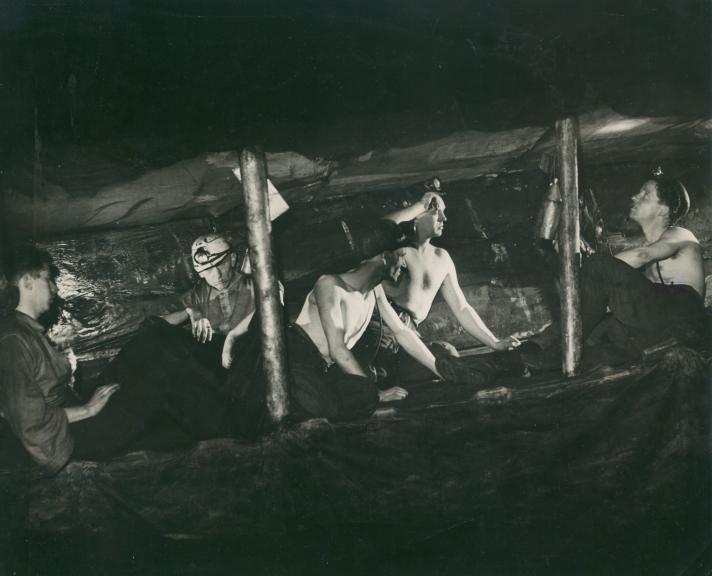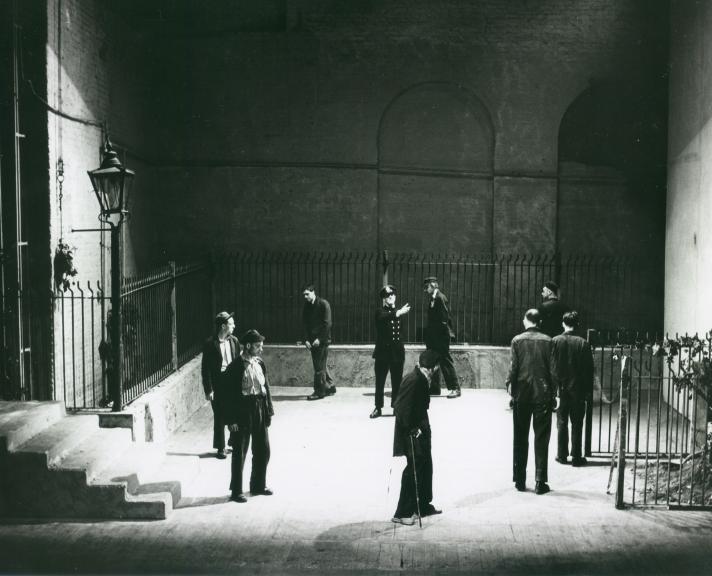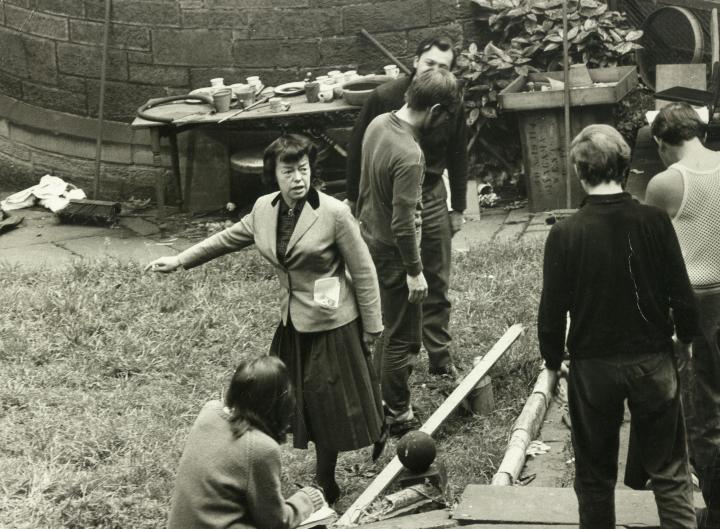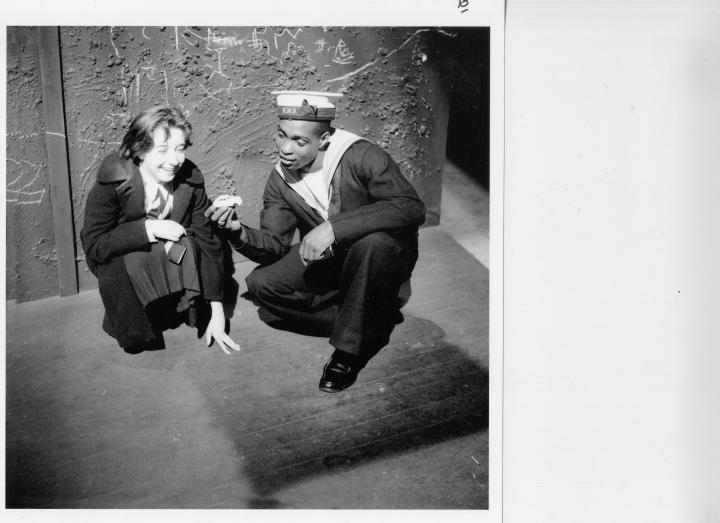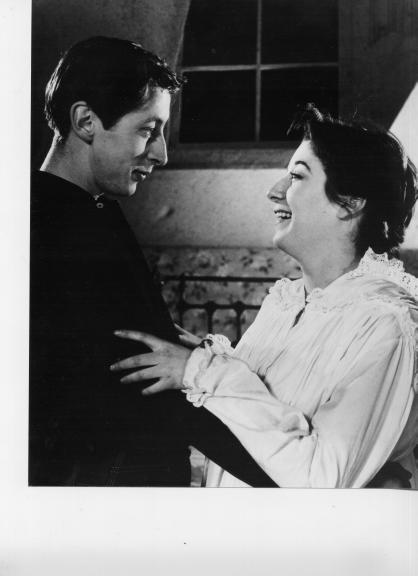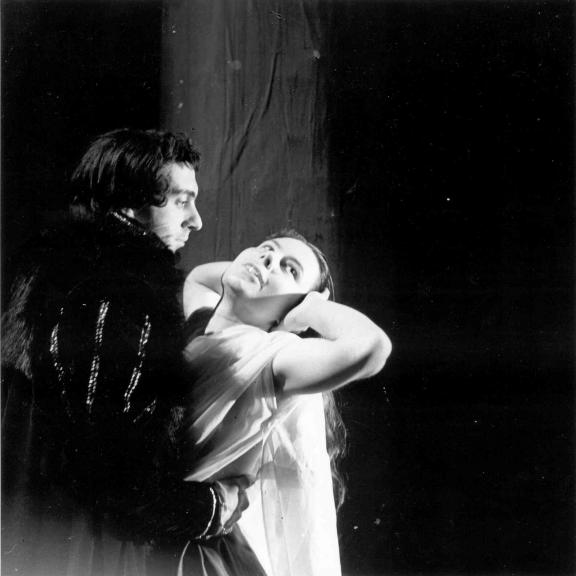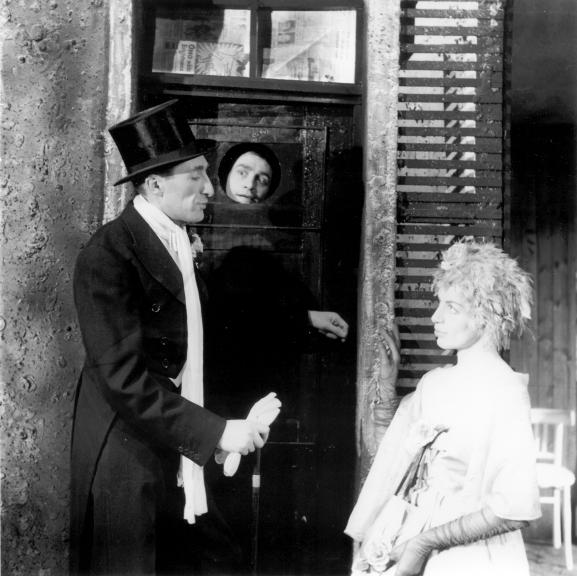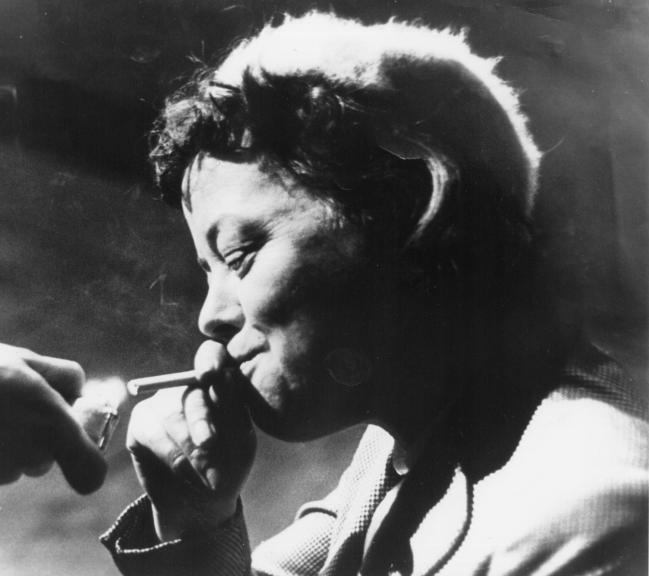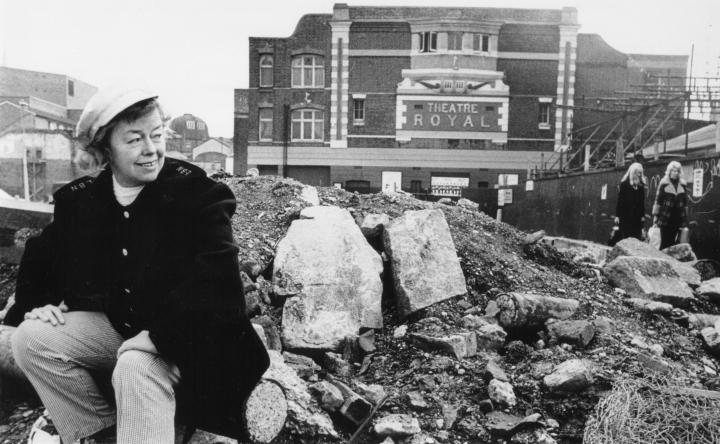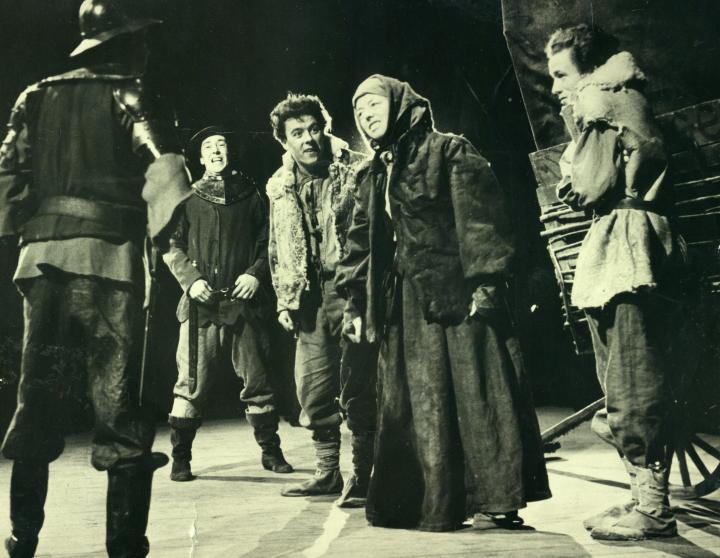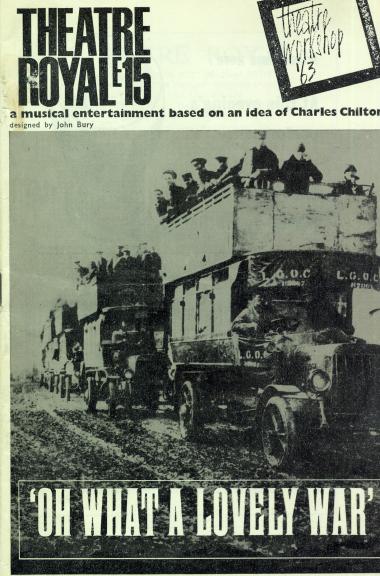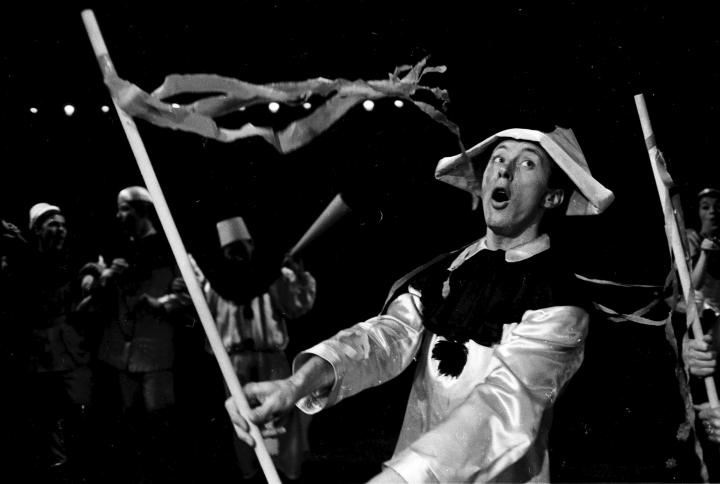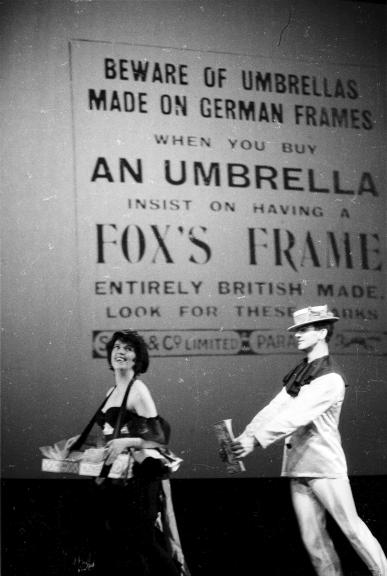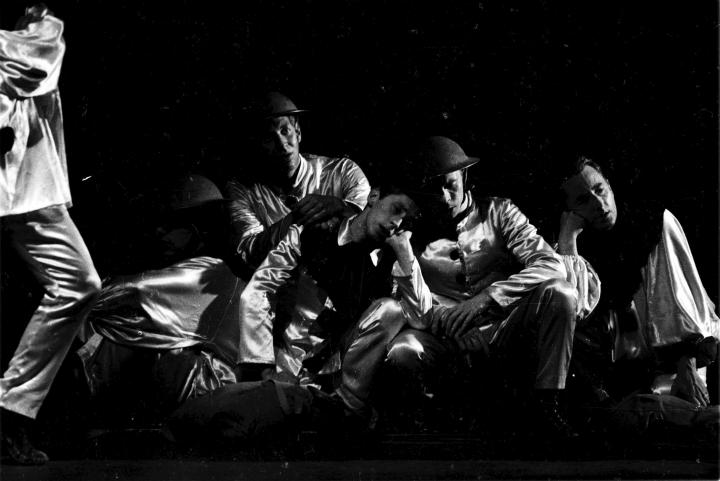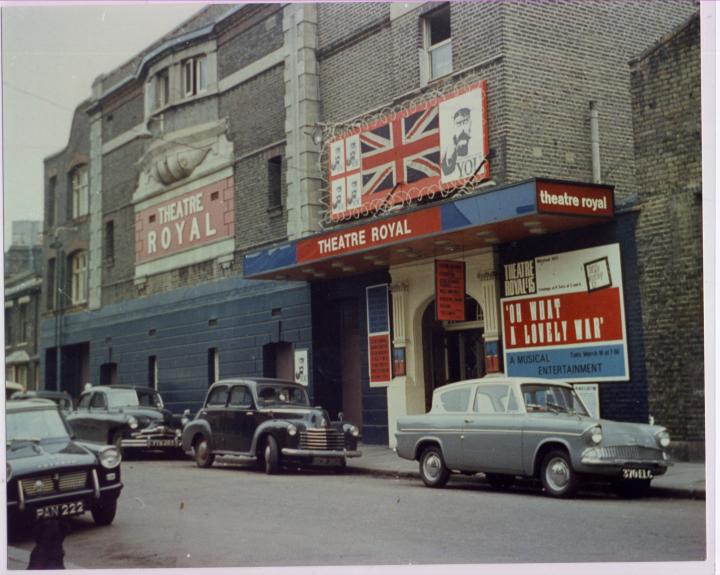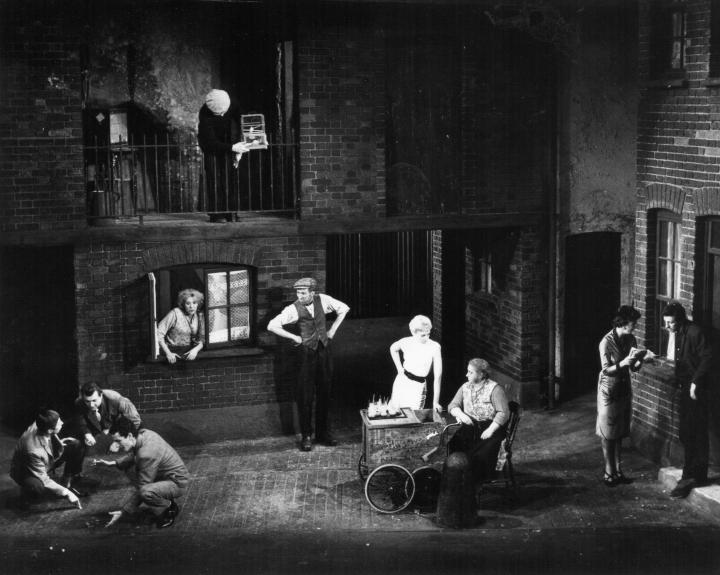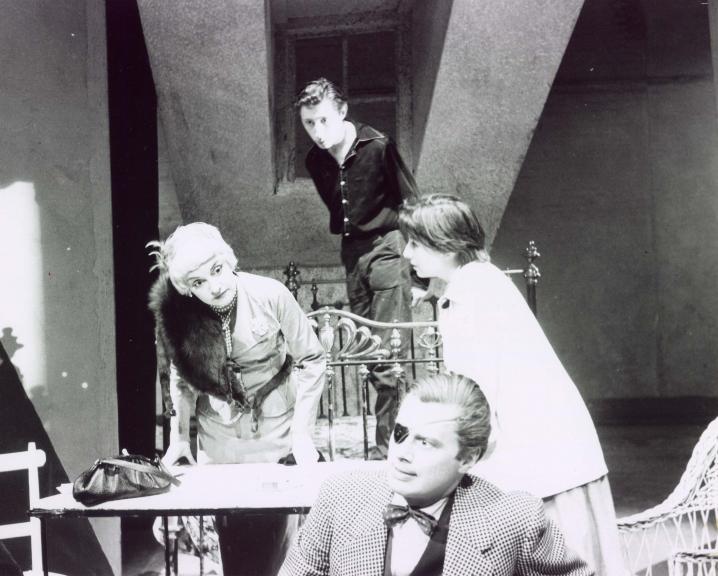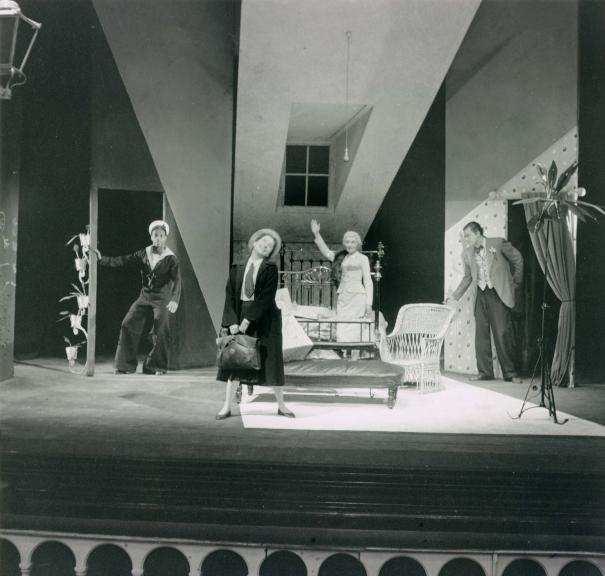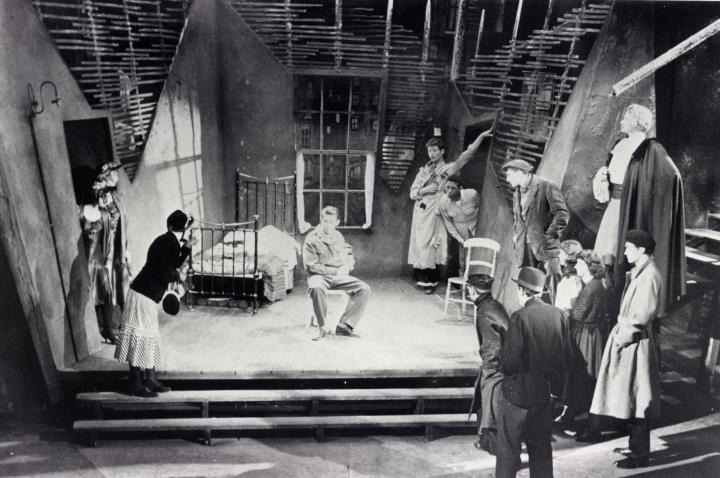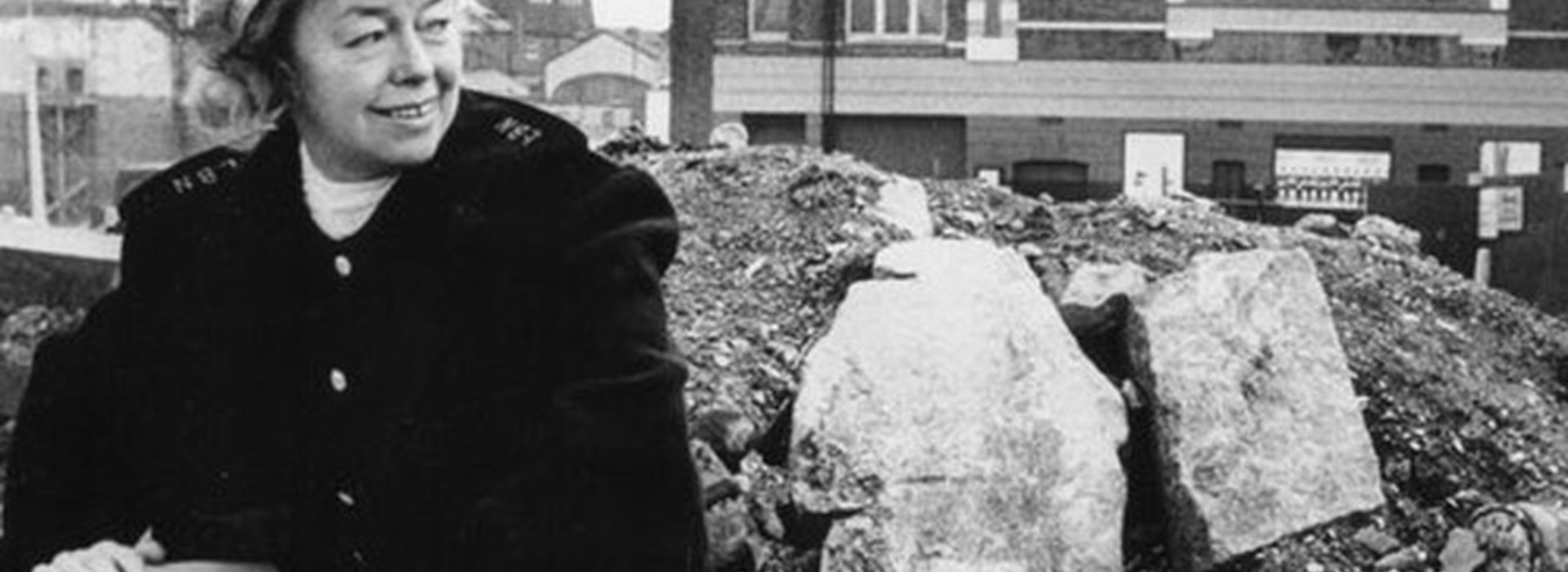
1953 - 1979
1953 - 1979
In 1945, a group of actors and artists formed the Theatre Workshop, a new theatre company. Their goal was to involve artists and audiences in drama as a living event. The company had never before had a permanent base, instead touring the north of England, Wales, and Europe, but in 1953 they decided to take over the derelict Theatre Royal in Stratford, London. Under the direction of Joan Littlewood, with Gerry Raffles as manager and John Bury as designer, they brought their ‘people’s theatre’ to Stratford East.
The theatre was in dire need of repairs, maintenance, and redecoration, but the Theatre Workshop company had no funds for this work. In between rehearsing the plays for their first season, they cleaned and painted and tried—and failed—to get the old boiler beneath the stage to work. To save money, they lived in the theatre’s dressing rooms, setting up the theatre as a sort of commune where they all shared the daily tasks—even cooking!
The Theatre Workshop became internationally recognised in 1955, when they were invited to represent England at the International Festival of Theatre in Paris. They scraped together the money to get to France, each member of the company with costumes in their suitcases and carrying a piece of the scenery as hand luggage.
The Theatre Workshop’s productions of Volpone and Arden of Faversham took Paris by storm. Money had to be found for the company’s return fares but they arrived back at Stratford in glory. The Theatre Workshop presented six productions at the festival in the following years, culminating in the award of the Grande Prix du Festival for Oh, What A Lovely War! in 1963.
Plays presented by the Theatre Workshop included The Quare Fellow (1957) and The Hostage (1958), both by Brendan Behan; You Won’t Always Be On Top (1957) by Henry Chapman; A Taste of Honey (1958) by Shelagh Delaney; Fings Ain’t Wot They Used T’Be (1959) by Frank Norman, with music by Lionel Bart; Sparrers Can’t Sing (1960) by Stephen Lewis; Oh, What a Lovely War! (1963), which played in the West End and on Broadway; and Mrs Wilson’s Diary (1967) by John Wells and Richard Ingrams, which also went on to the West End.
The late 1960s saw the start of the regeneration of Stratford, which would include the demolition of Angel Lane, Salway Road and the theatre itself. Just as the bulldozers were making their way along Angel Lane, Gerry Raffles obtained a last-minute provisional Grade II Preservation Order for the theatre, saving it from destruction. Nevertheless, there were persistent attempts by developers to have the theatre demolished. Gerry Raffles was on constant guard, tearing down barriers erected by builders next to the theatre and making sure a bulldozer never ‘accidentally’ knocked down one of the supporting walls.
In 1975, Gerry Raffles at last obtained sufficient financial support to start a season of plays with a nucleus of the old company members on proper salaries, and without the need to transfer plays to the West End to survive. Tragically, at this high point, Gerry Raffles died suddenly on 11 April 1975, at the age of 51. Joan Littlewood, in grief, left the theatre never to return. The square next to the theatre is now named Gerry Raffles’ honour and memory.
Following Joan Littlewood’s departure, the theatre continued with brief periods of leadership by Ken Hill, Maxwell Shaw, and Claire Venables.
Photos are all from Theatre Royal Stratford East Archive.


